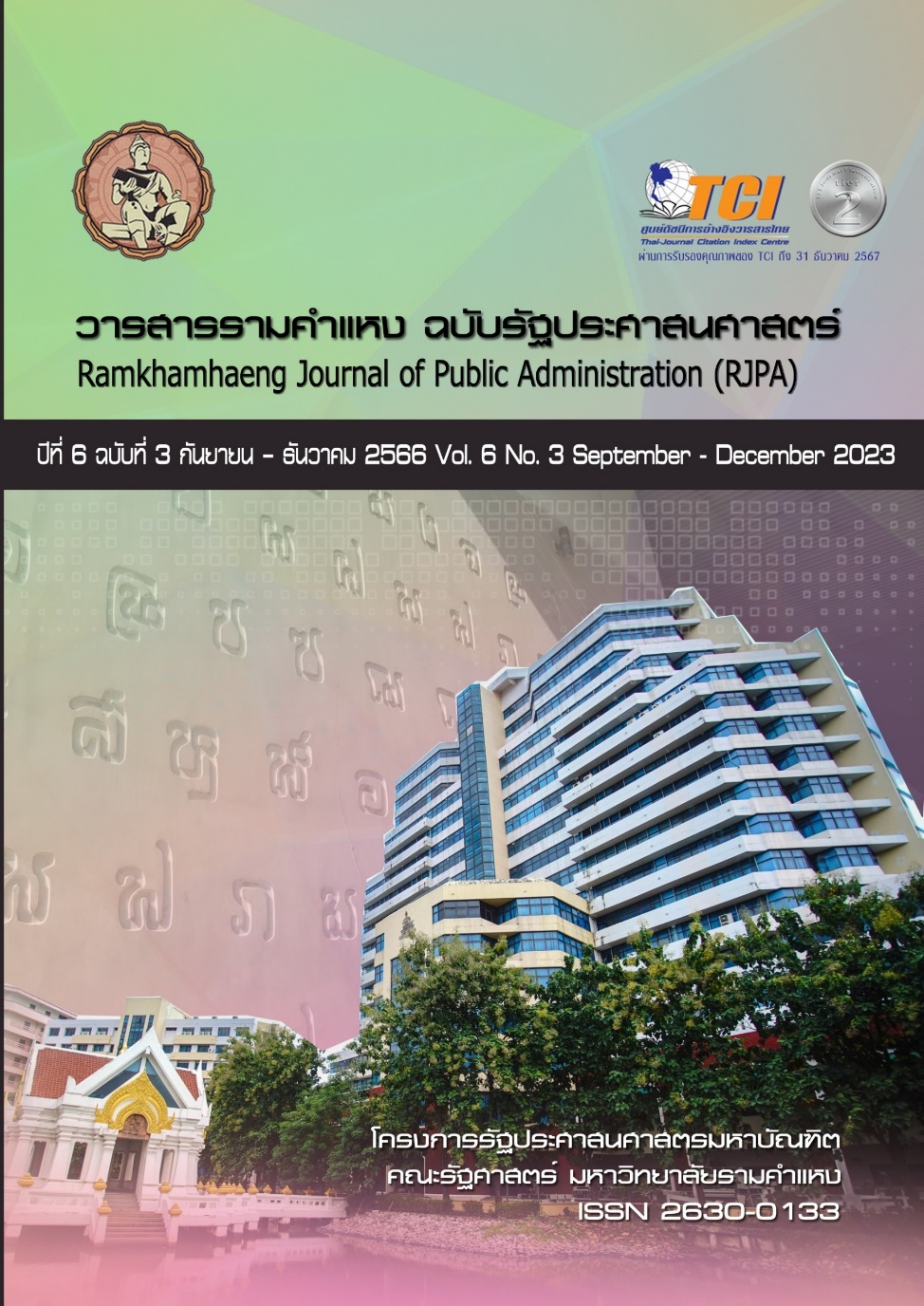Analytical models: Tools used to study political phenomena
Abstract
This is an academic article which derived from theories and important concepts concerning the science of political science. There are so many political scientists in the era of behavioral science who want to create a political theory that its accuracy is comparable to those of pure sciences such as chemistry, biology, etc., with the hope that it can be used as a tool for analyzing and predicting political phenomena that occur with a certain level of accuracy as possible. The main aim of the article is to understand the philosophy and basic assumptions behind the influential analytical models that political scientists have frequently used to study political phenomena, i.e. system model, functional model and cybernetics.
References
สิทธิพันธ์ พุทธหุน. (2555). แนวการศึกษารัฐศาสตร์. กรุงเทพมหานคร: สำนักพิมพ์มหาวิทยาลัยรามคำแหง.
Almond, Gabriel and James Coleman. (1960). The Politics of The Developing Areas. New Jersey: Princeton University Press.
Bertalanffy, Ludwig von. (1960). Problems of Life. New York: Harper Torchbook.
Davis, Kingsley. (1959). "The Myth of Functional Analysis as a Special Method in Sociology and Anthropology", American Sociological Review, 2. (Dec. 1959), p. 757.
Homans, George C. (1960). Social Behavior: Its Elementary Forms, (New York: Harcourt, Brace 2 World Inc.
Moor, Wilbert. (1978). Functionalist" in Tom Bottomore and Robert Nisbet editors., History of Sociological Analysis., New York: Aric Books, Inc.
Sorokin, Pitirim. (1928). Contemporary Sociological Theories. New York: Harper & Row.
Downloads
Published
How to Cite
Issue
Section
License

This work is licensed under a Creative Commons Attribution-NonCommercial-NoDerivatives 4.0 International License.



